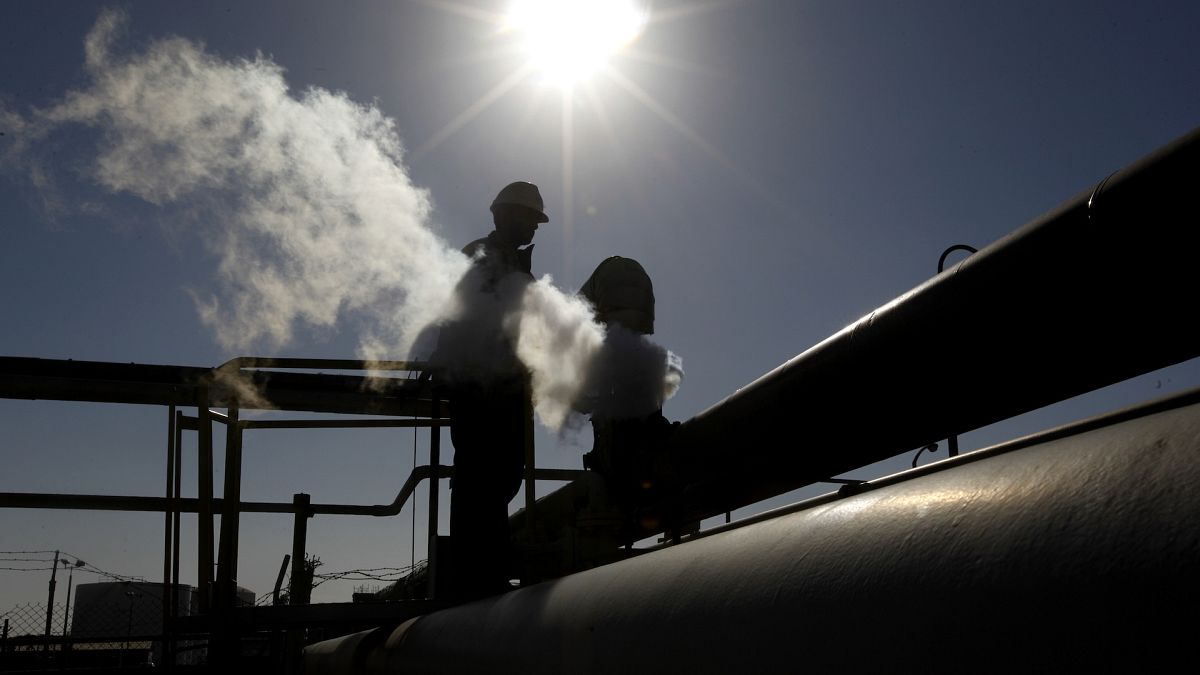Easing fears of a potential Israeli attack on Iran’s oil facilities have sent both oil and global prices sharply lower on Tuesday. However, volatility is likely to persist, with critical economic events later this week.
Both oil and gold prices fell sharply on Tuesday amid potential ceasefire talks between Israel and Hezbollah, the Iran-backed Lebanese military group.
Oil futures retreated 4% after surging to a six-week high on Monday, while gold prices dropped by over 1%, marking the fifth consecutive daily decline from near all-time high levels. Some analysts believe the retreats in crude and gold prices are due to funds cashing in on the previous war-induced buying hype.
However, oil and gold prices stabilised during the Asian session, as risk aversion returned to markets ahead of a critical discussion between the US and Israel later today.
At 6am CEST, Brent futures had risen 0.3% to $73.78 per barrel, and WTI futures were up 0.4% to $77.48 per barrel. Meanwhile, both spot gold and gold futures were flat.
Middle East conflicts remain in focus
Volatility in these commodities, sensitive to geopolitical tensions, may continue depending on developments in the Middle East, where the United States plays a key role in mediating peace talks.
According to the US Department of Defence, Israel’s Defence Minister, Yoav Gallant, will meet US Defence Secretary Lloyd Austin later today “to further discuss ongoing security developments in the Middle East”.
US President Joe Biden mentioned last week that Israel had not decided how to respond to Iran’s missile attack.
However, the meeting was postponed due to objections from Israeli Prime Minister Benjamin Netanyahu. Instead, Biden and Netanyahu are expected to discuss Israel’s response plan through a phone call on Wednesday, as reported by Axios.
Market attention will remain on whether Israel will target Iran’s oil production facilities and other strategic sites in response to Iran’s ballistic missile attack. On Saturday, Israel confirmed its intention to retaliate “when the time is right”.
Economic events may offset geopolitical tensions
For the remainder of the week, economic events such as the Federal Reserve meeting minutes and US inflation data could overshadow geopolitical tensions in their impact on oil and gold markets, provided there is no progress in ceasefire talks or further escalation of the war in the Middle East.
In October, the US dollar strengthened significantly after having fallen to a 15-month low, following stronger-than-expected US job data.
Market participants reassessed the Federal Reserve’s outlook for rate cuts this year, anticipating a slower pace of easing.
According to the CME FedWatch Tool, the central bank is now expected to reduce interest rates by 0.25% in November, rather than the 0.5% cut predicted last month.
A strong US dollar is likely to exert further pressure on gold prices, although it is not necessarily a determining factor for oil markets. However, oil prices are often tied to demand outlooks, meaning a strong economic backdrop tends to be bullish for oil.
The Fed meeting minutes will be closely watched on Thursday, followed by the European Central Bank (ECB) monetary policy meeting accounts and the US Consumer Price Index (CPI) release on Friday.
While both central banks are expected to continue their easing policies, consensus suggests that US inflation will cool further, likely leading to a retreat in the USD.
Should this occur, both gold and oil may regain upward momentum amid a weakening dollar and a soft-landing US economy.
Checkout latest world news below links :
World News || Latest News || U.S. News
The post Oil and gold retreat as fears of a widening Middle East war diminish appeared first on WorldNewsEra.

